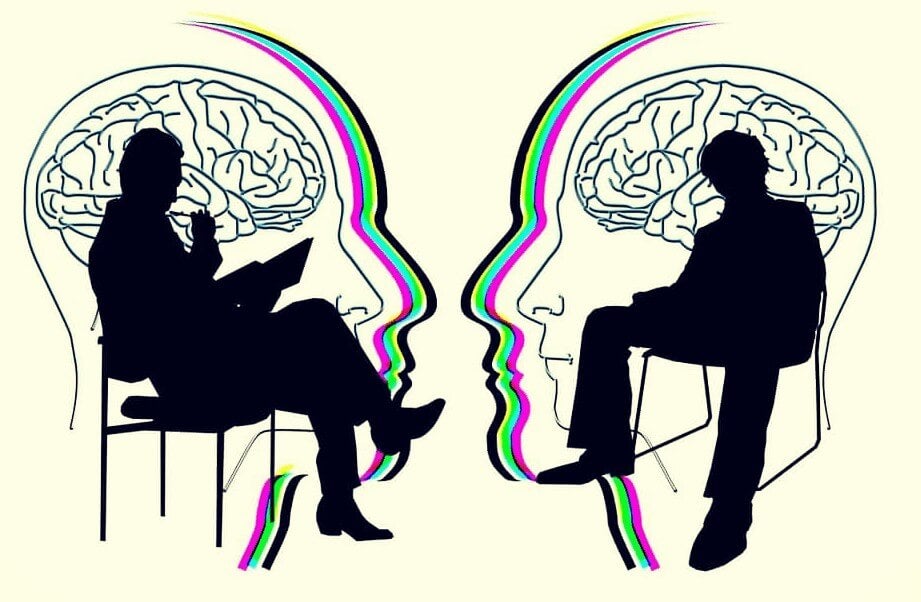Currently, we have a wide range of psychological support options, each with a different degree of therapeutic effectiveness. Neither patients nor psychologists themselves know for sure what the most effective approach is. To clarify the situation, the Universitat Autonoma de Barcelona has carried out a study.
After carefully examining the models and consulting with professionals in the field, they identified seven factors that have a decisive impact on therapeutic efficacy, which, contrary to what many think, have much more to do with attitudes and values than with specific techniques.
- What every psychologist and patient seeks is that therapeutic work is really effective.
- However.
- In addition to theories and concepts.
- The link between the two is fundamentally human.
- One suffers and the other guides him to face this suffering.
- UAB survey.
- This is achieved through the following factors.
“He knows all theories, he masters all techniques, but by touching a human soul, be simply another human soul. “- Carl G. Jung-
All psychologists must listen for the patient to speak, however, the psychologist does not always have a mind completely open to the patient’s concerns, sometimes internal noises prevent this process.
Inner silence is necessary for authentic listening to be possible. This, in turn, generates a “presence” effect. It promotes in the patient the certainty that he is facing another human being capable of intervening in his life in a non-invasive way.
Modern therapists know that psychology has a scientific basis, but it is also an art. In turn, every art needs creativity. This means not following strictly preset patterns.
Creativity affects therapeutic efficacy by allowing the perception of each patient’s particular conditions and adapting them according to the purpose of treatment, which in turn makes more human a link that is not perfect.
At the Universitat Autonoma in Barcelona, therapists from various fields were asked to determine the common factor that called them, even if their approaches were very different. The conclusion was unique: intent.
All the psychologists wanted their patients to get better. However, one study found that over the years, many therapists feel this intention less and patients notice the change.
Dan Ariely said that “when you expect something to happen, your brain makes it happen. “In 1986, a study was conducted concluded that at least 15% of therapeutic efficacy depends on the placebo effect.
When a person trusts their psychotherapist and expects therapy to help them, this is likely to happen, hence the importance of establishing a positive bond, highlighting and esying progress.
Often, the psychologist’s words seek to clarify and simplify ideas, which is appropriate to help sort ideas and clarify situations, but can also be perceived as indolent reductionism.
On the other hand, it has been found that the use of a more metaphorical and sensory language can have great effects on the patient, so poetry is one of the factors that can increase therapeutic effectiveness in some patients.
The study of the Universitat Autonoma de Barcelona invites us to reflect on the link between the therapist and his patient. As much as there are plans to install neutrality, especially in some areas, this is impossible.
Both the patient and the psychologist have emotions and a natural tendency to general ties. They’re both human. In this sense, many areas suggest that the therapist should afford to feel compassion for himself and his patient, this does not interfere with the process, on the contrary, strengthens the alliance and generates greater therapeutic efficiency.
A large part of the human being moves in the field of puzzles, the scientific nature of psychology often neglects it and wants to understand everything, decipher it and explain everything, even if it is not always possible.
It is good that the psychologist and the patient know it clearly to achieve greater therapeutic effectiveness, there are questions that are not answered and it is not bad that it does, the puzzle also has a place, and an important place within the human.
Finally, research by the Universitat Autonoma de Barcelona indicates that the most important thing for therapeutic efficacy does not reside in the techniques, theories or currents of thought, the fundamental element is the human and professional quality of the therapist and his ability to translate it into concrete attitudes. in treatment.

